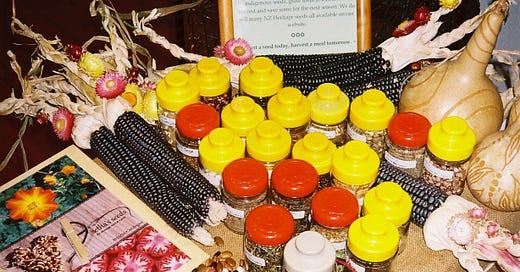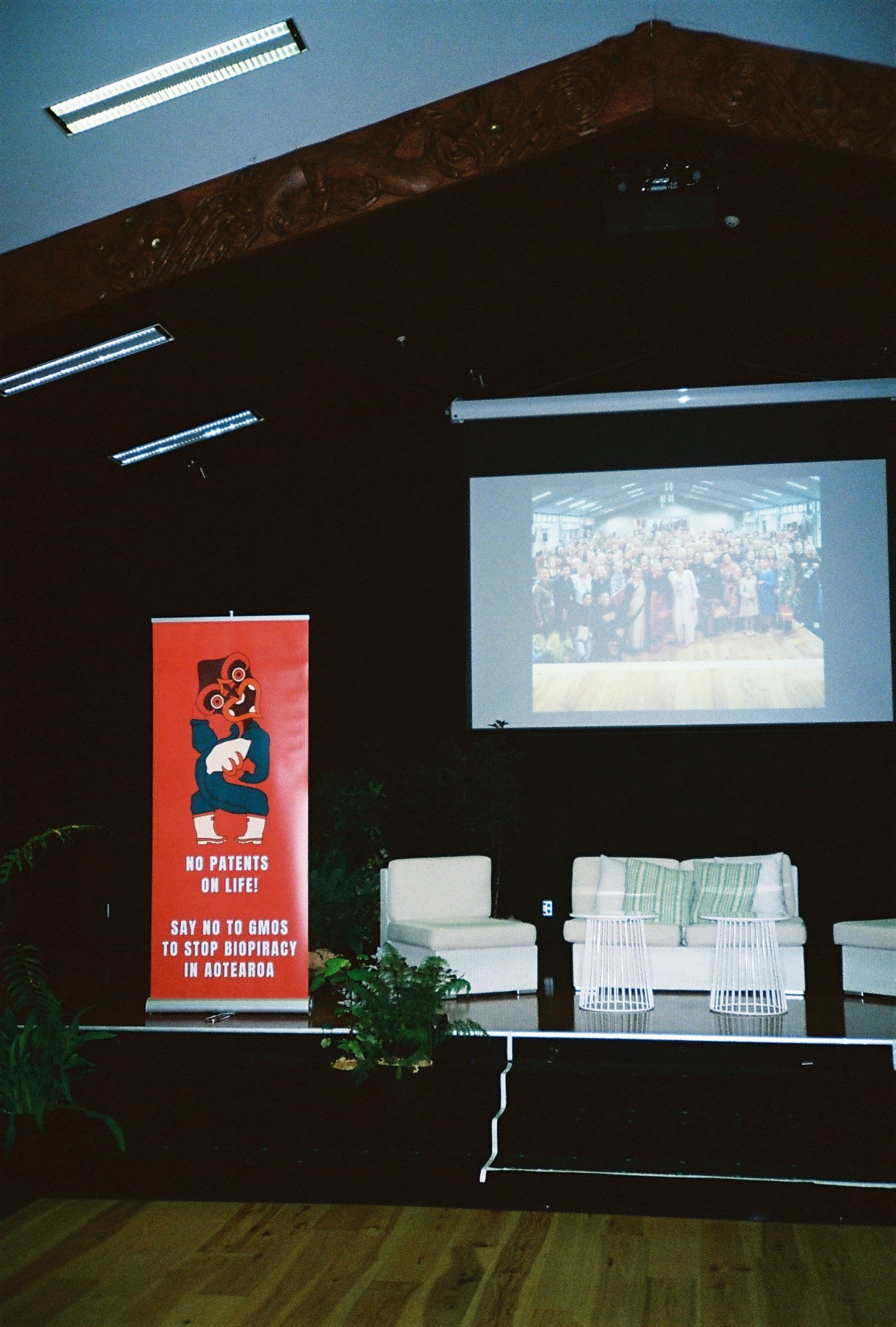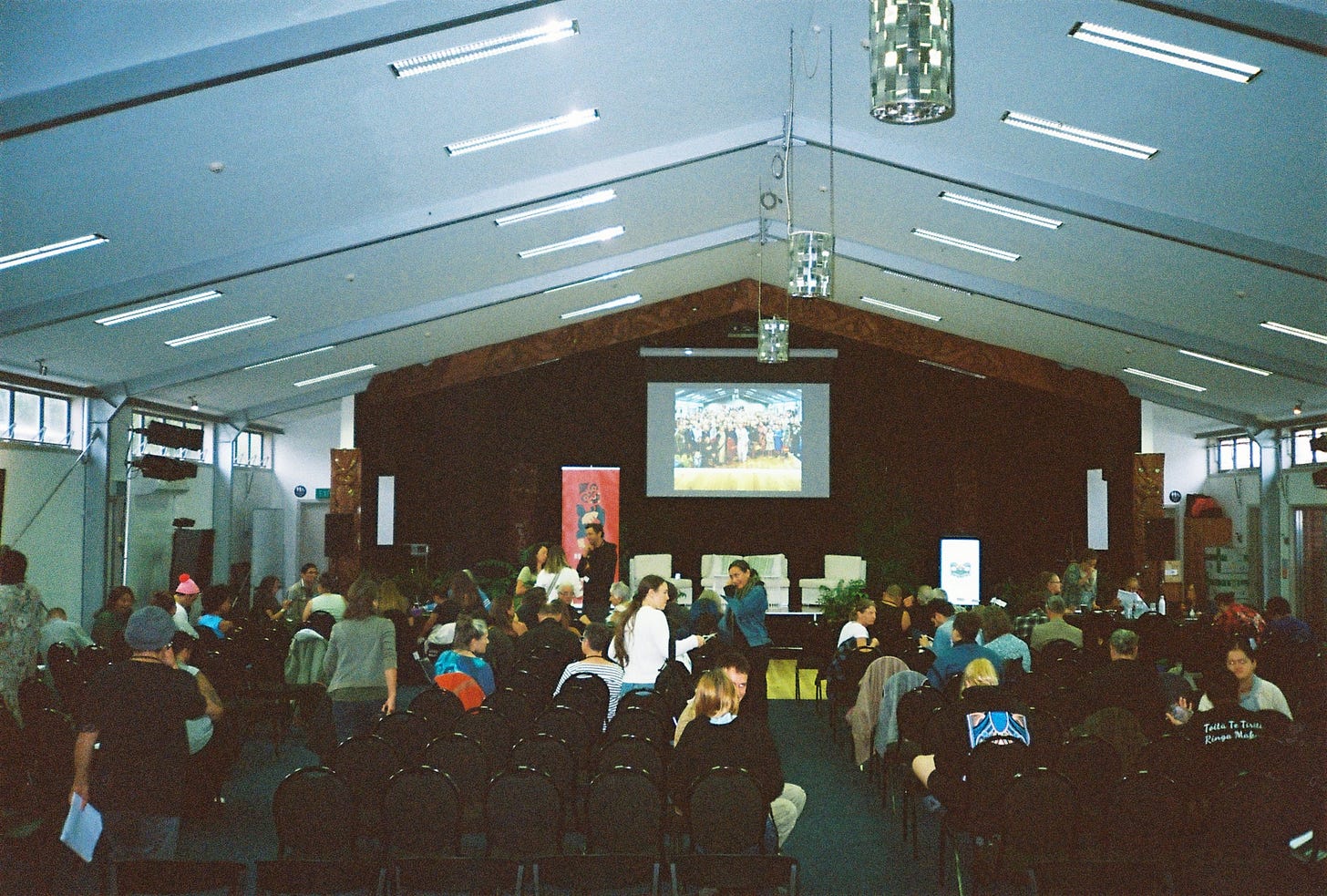Kitchen Conversations
How Indigenous communities worldwide champion resilience and community-building by safeguarding their foodways—my experience of He Whenua Rongo 2024 [Part 01].
Earlier this year, a few months before leaving Aotearoa, New Zealand, I realised that Dr Vandana Shiva was travelling to the Pacific region and speaking at He Whenua Rongo, a three-day symposium in Tāmaki Makaurau, Auckland. It was a unique, stellar occasion to be in the presence of a hero of mine, a figure of the anti-GMO and anti-globalisation movement and an eco-feminist, amongst many other activisms.
My husband and I could only afford to go to one day of the symposium, so after many messages to the organisers, I was advised to be present for the second day of the conference, "International Indigenous Seed, Soil and Food Sovereignty Symposium", on April the 12th to get a chance to listen to Shiva. The day's theme was, "What can we learn from Indigenous communities to nurture our seeds, soil and Indigenous foodways?"
This essay, split into two parts and covering our Kitchen Conversations publishing schedule for October and November, will look at the symposium context, the speaker's outtakes from the second day problematic, and stress how regionalised Indigenous cultural foodways are a significant path to global food security, moving away from capitalist economies, and best approach to build climate change, food and community resilience. I came to see Vandana Shiva, I left with so much more.
The context of He Whenua Rongo symposium
Organised by the Papawhakaritorito Charitable Trust, the Māori collective Ngā Toki Whakarururanga and the National Māori Organics Authority of Aotearoa, Te Waka Kai Ora, He Whenua Rongo was a three-day activation event on the broad topic of Indigenous food sovereignty.
The symposium aimed to create a space for global Indigenous communities, farmers, producers, activists, food advocates, scientists, and policymakers to reunite and collaborate, exchanging their broad knowledge and wisdom on seed, soil, and food systems. Such a reunion was an opportunity to demonstrate the array of solutions that already exist for agricultural practices worldwide, the alternatives to the mono-crops and capitalist system, and the possibilities of a resilient food future for all. It was also a celebration of seed freedom, diversity, soil regeneration and the restoration of Aotearoa's cultural food systems.
The event was ignited by the government's move to introduce GMOs in the food system of Aotearoa, New Zealand, and the growing impact of climate change on local communities, which are both threats to a resilient food system. He Whenua Rongo took place between Te Mahurehure Marae and Papatūanuku Kokiri Marae.
The symposium lasted three days and covered topics such as free trade and agriculture, Indigenous seed sovereignty, GMOs in food and farming, post-capitalist economies, Hua Parakore [kaupapa Māori system and framework for growing product and food (kai)] and community empowerment.
Day 1 on the 11th of April, "Globalisation, free trade and post-capitalist economies", covered the impacts of globalisation, capitalism and free trade agreements on Indigenous rights, Nature's rights, food, farming and sacred traditional medicines from a Māori lens. Speakers also discussed Indigenous resistance movements and explored the strategies and pathways to developing alternative post-capitalist economies for food, farming, and Nature, free from a capitalist patriarchal structure, with Dr Vandana Shiva.
Day 2 on the 12th of April, "International Indigenous Seed, Soil and Food Sovereignty Symposium" sat within an international context with the intervention of Indigenous representatives worldwide. They shared their strategies and movements for seed, soil, and food sovereignty within their localisation, as well as what people in Aotearoa could learn from them to nurture seeds, soil, and Indigenous foodways.
Day 3, cloture day, on the 13th of April, "He Whenua Rongo: Hua Parakore and growing local seed, soil and food sovereign economies" was a field trip to South Auckland at Papatūānuku Kōkiri marae, including discussions on their Hua Parakore verification journey, demonstrating how the marae work is a local-growing movement of resistance, returning food growing and farming into the power of Indigenous and local communities.
A detailed program with all the speakers is accessible here.
Day two of He Whenu Rongo was about opening the lens of Indigenous food sovereignty towards other groups outside of Aotearoa, New Zealand, and learning about their strategies and grassroots movements locally. The main groups came from Turtle Island (North America) and India. There was also a presentation of initiatives from African, Asian and Pacific Ocean communities.








